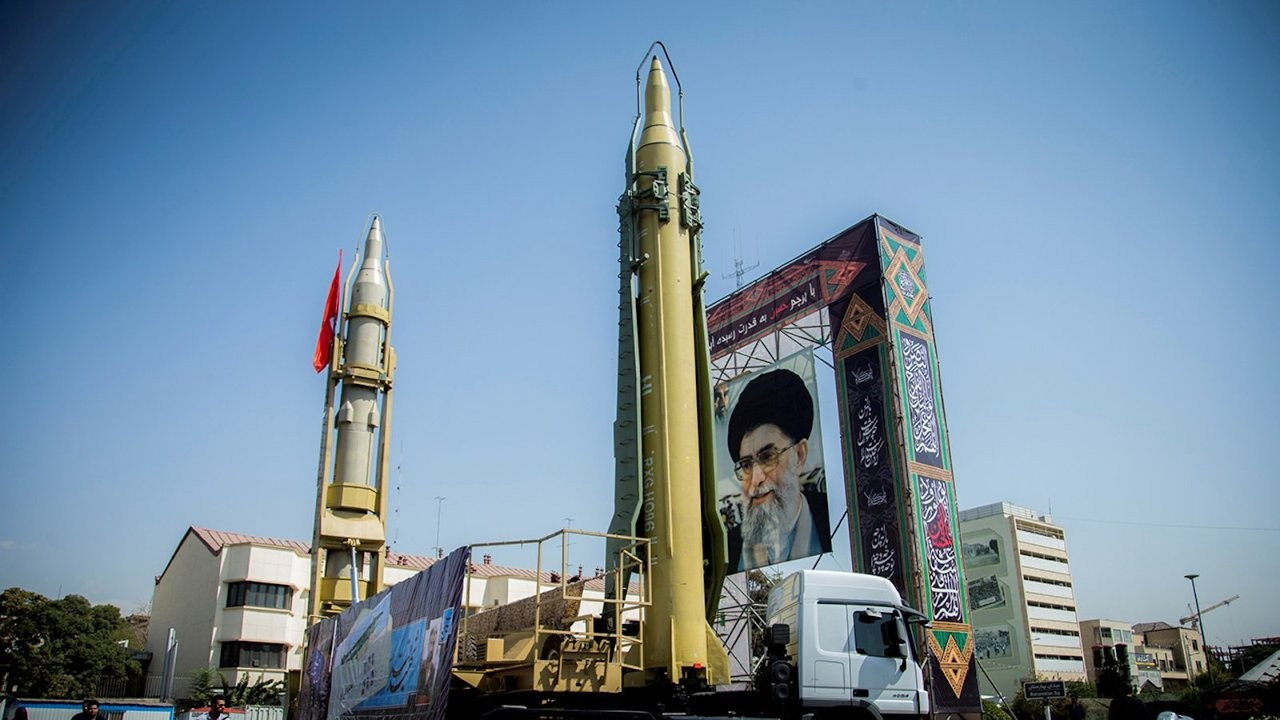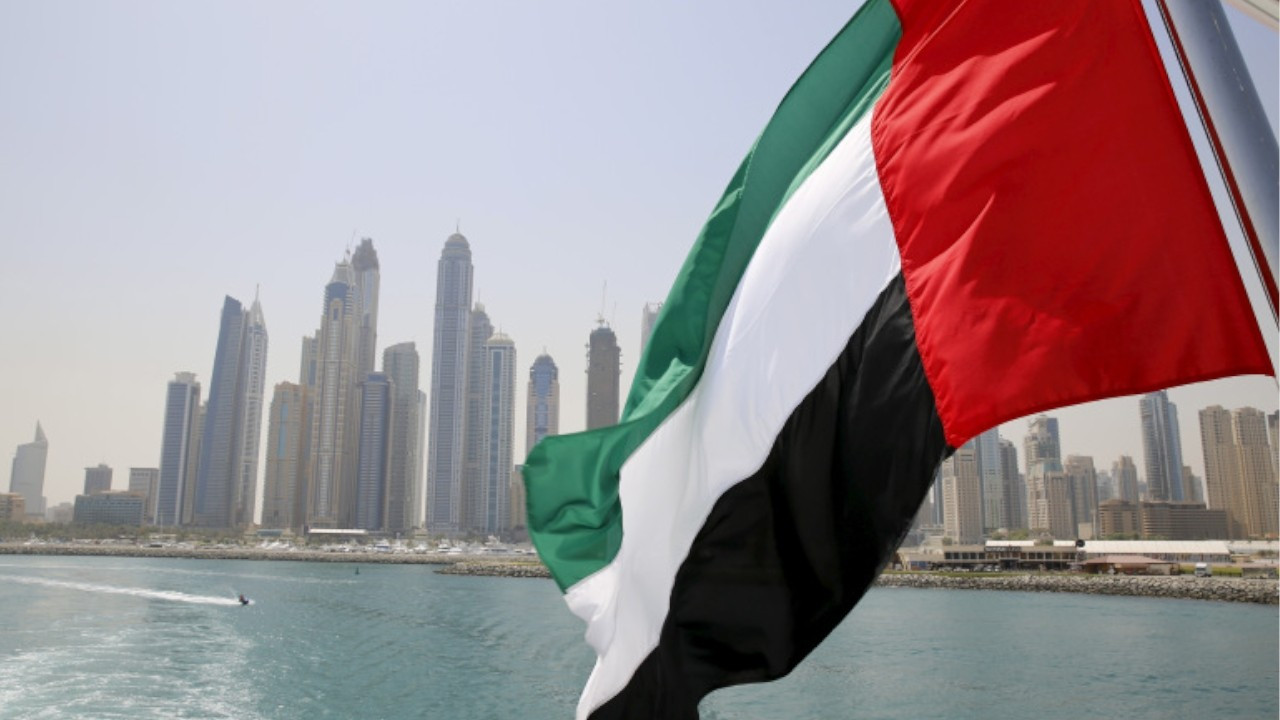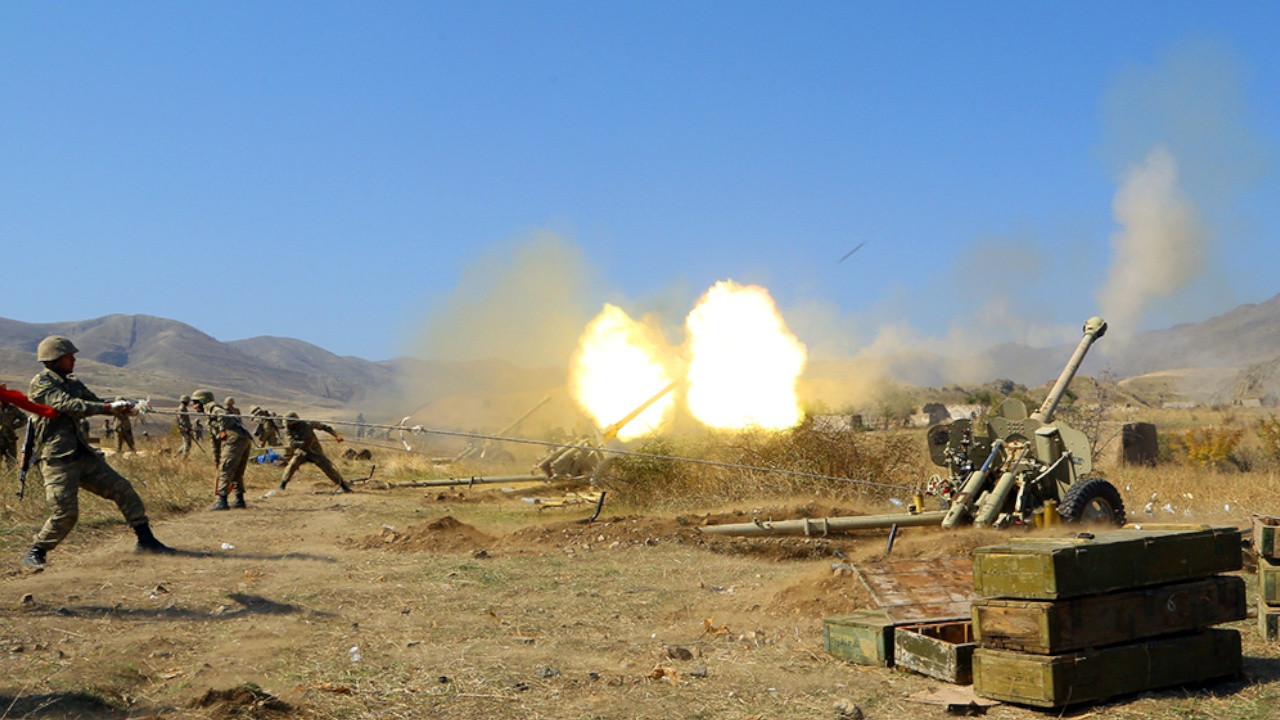Turkey slams Iran's 'aggressive statements' against Erdoğan
Turkey has slammed Iran for its "aggressive statements" against President Erdoğan, whose recitation of a poem angered Tehran due to "being one of the separatist symbols of pan-Turkism." According to Presidential Communications Director Fahrettin Altun, the poem was intentionally taken out of context by Iranian authorities.
Duvar English
Turkish Presidential Communications Director Fahrettin Altun on Dec. 12 condemned Iranian authorities over "unfair accusations" against President Recep Tayyip Erdoğan after he had read a poem during a ceremony in Azerbaijan.
Altun condemned the "aggressive statements" made against Erdoğan and Turkey "on the pretext of a poem deliberately taken out of context."
On Dec. 10, Erdoğan paid a visit to Turkey's staunch ally Azerbaijan for a military parade marking Baku's victory over Armenia after six weeks of fighting over the disputed Nagorno-Karabakh region.
During his visit, Erdoğan recited a poem by Azerbaijani poet Bakhtiyar Vahabzadeh that Tehran said could fan separatism among Iran's Azerbaijani minority.
The next day, Iranian Foreign Minister Mohammad Javad Zarif said on Twitter that the poem Erdoğan recited targeted Iran's territorial integrity.
"President Erdoğan was not informed that what he ill-recited in Baku refers to the forcible separation of areas north of Aras from Iranian motherland. Didn't he realize that he was undermining the sovereignty of the Republic of Azerbaijan?" the foreign minister asked.
"NO ONE can talk about OUR beloved Azerbaijan," Zarif said, referring to a northwest region of Iran where many of its ethnic Azeris live.
Pres. Erdogan was not informed that what he ill-recited in Baku refers to the forcible separation of areas north of Aras from Iranian motherland
— Javad Zarif (@JZarif) December 11, 2020
Didn't he realize that he was undermining the sovereignty of the Republic of Azerbaijan?
NO ONE can talk about OUR beloved Azerbaijan
According to Iran’s ISNA news agency, the poem is “one of the separatist symbols of pan-Turkism.”
Iran is home to a large Azerbaijani community, mainly in northwestern provinces next to Azerbaijan and Armenia, where the Aras river defines the border.
ISNA said the verses point to Aras and “complains of the distance between Azeri-speaking people on the two sides of the river.”
Iranian authorities then summoned Turkey's ambassador to Tehran to complain about Erdoğan's remarks, which was followed by Ankara summoning Iran's ambassador to Ankara over the "baseless" claims.
Iran and Turkey have increased economic cooperation over the past decade but remain rivals in several parts of the Middle East and Central Asia.
Altun claimed that Tehran was attempting to create "artificial tensions through a poem" and that Iran's name was not even mentioned in the poem.
He said the poem emotionally reflects on "the feelings of people who were victims of the Armenian occupation of the Azerbaijani lands."
"We find it hard to understand the distortion of the meaning of a poem, trying to create a meaningless tension and displaying an attitude that would please Armenia instead of sharing the enthusiasm of the rightful victory of a neighboring country sharing the joy of victory with the people," Altun said.
He said their reaction towards the "unjust accusations" made by the Iranian authorities and their expectation of a "sensitive approach" was brought to the attention of the Iranian ambassador to Ankara.
"At a time when peace, stability, and security of the region impose great responsibilities on the two countries, it is extremely important to carefully avoid all kinds of attitudes and discourses that may overshadow the bilateral relations," Altun said.
"We advise the Iranian authorities to get rid of this delusional mood as soon as possible and to take advantage of our common historical past and strong ties between our peoples to create a positive agenda and not hostility," he added.
'Turkey stood with Iran in most difficult times'
Earlier, Turkish Foreign Minister Mevlüt Çavuşoğlu, in a phone call with his Iranian counterpart Javad Zarif, slammed the "unfounded statements about Turkey and Erdoğan" and deemed them "unacceptable."
According to state-run Anadolu Agency, Çavuşoğlu "reminded Turkey’s support for Iran during the most difficult periods when everyone turned their back on them and that forgetting this fact increased the disappointment over Iran’s baseless statements."
Turkey's ruling Justice and Development Party (AKP) spokesman Ömer Çelik also condemned Iranian politicians, saying that "they have lost their way and are confused about Iran's enemies."
"Erdoğan has always regarded Iran as a friendly and brotherly country," he said, adding that "only the Turkish President raised his voice against sanctions on Iran while everybody else remained silent."
"Our president has always opposed injustices against brotherly Iran. Iranian politicians who overstep should be respectful when talking about our president," Çelik said.
1) Bazı İranlı siyasetçilerin Cumhurbaşkanımız hakkında kullandığı çirkin dili kınıyoruz. Bu İranlı siyasetçiler İran’ı her zaman dost ve kardeş ülke olarak gören Cumhurbaşkanımızla, İran’ın düşmanlarını birbirine karıştıracak kadar pusulalarını kaybetmişler.
— Ömer Çelik (@omerrcelik) December 12, 2020
Earlier on Dec. 11, Iran summoned Turkey's ambassador to the country over the poem.
Ambassador Derya Ors was summoned by Iran's deputy foreign minister to be told Tehran's "harsh condemnation," Foreign Ministry spokesman Saeed Khatibzadeh said in a written statement.
Ors was also told that Iran urgently expects an explanation, the statement added.
“The Turkish ambassador was informed that the era of territorial claims and expansionist empires is over,” the Foreign Ministry said on its website. “Iran does not allow anyone to meddle in its territorial integrity.”

 Iran getting a nuclear bomb 'would put enormous pressure on Turkey'Diplomacy
Iran getting a nuclear bomb 'would put enormous pressure on Turkey'Diplomacy UAE halts visas to Turkey, 12 other countriesDiplomacy
UAE halts visas to Turkey, 12 other countriesDiplomacy Turkish parliament approves troop observer deployment to KarabakhPolitics
Turkish parliament approves troop observer deployment to KarabakhPolitics